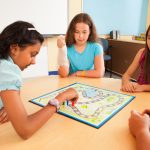|
Getting your Trinity Audio player ready...
|
Supporting Indigenous clients on their career journeys requires a holistic lens – one that honours lived experience and diverse ways of knowing while also recognizing the historical and systemic factors that shape education and employment. The following resources highlight diverse Indigenous worldviews on career development and offer valuable insights into navigating today’s labour market.
This article was originally published in 2023 as part of a five-part CareerWise series on “Indigenizing Career Development” and has been updated.
Cultural Infusions and Shifting Sands: What Helps and Hinders Career Decision-Making of Indigenous Young People (Canadian Journal of Career Development) [Study]
This study highlights the systemic, interpersonal and experiential processes in career decision-making for Indigenous young people in Canada. Implications for career counselling practice and future research are also discussed.
Global Perspectives in Career Development: Empowering Your Inclusive Practice through Indigenous Knowledge and Worldviews (CERIC & CDANZ) [Webinar series]
This webinar series provides an opportunity to learn from Indigenous career professionals from New Zealand and Canada, who share their journeys in the career development field and their perspectives on cultural approaches to Indigenous career development. The conversation helps participants understand how Indigenous peoples and Indigenous career practitioners’ worldviews of work and holistic approaches to self-development and self-determination are key aspects of cultural knowledge that inform workforce development today.
Guiding Circles (Indigenous Works) [Training]
This two-part facilitator training, with accompanying workbooks, supports you to help your clients make a connection between life and career and understand how to integrate an Indigenous worldview with effective career strategies.
Indigenous Employees’ Views and Experiences – Results of the Indigenous Workforce Retention Survey (Government of Canada) [Report]
Many Voices One Mind: A Pathway to Reconciliation (2017) was a government strategy that aimed to reduce and remove barriers to public service employment encountered by Indigenous Peoples. A survey conducted to inform the strategy indicated that Indigenous employees were looking for three types of learning and development supports: more training and development opportunities; feeling and being part of a network of Indigenous employees, and mentorship opportunities. The report also explored unique characteristics and needs of the Inuit and objectives to address training, development and career advancement concerns expressed by Indigenous employees.
Indigenous inclusion at work is more than just representation – it’s reconciliation (The Globe and Mail) [Article]
This article examines trends in employment rates, how to foster inclusion and ensure equitable access to jobs. A purposeful approach mentioned is a seven-stage strategy that considers both Indigenous and non-Indigenous perspectives, Indigenous history, outlook, culture and corporate culture.
Indigenous Career Mentor Program (University of Manitoba) [Program]
This mentorship initiative, launched in 2022, offers Indigenous students the chance to connect with mentors across a range of professions, including Health, Education, Government, Arts, and Science. Participants gain industry insights, personalized advice, and real-world guidance to support their transitions into the workforce.
Reconciliation Through Indigenous Education (University of British Columbia) [Course]
This free online course will help you envision how Indigenous histories, perspectives, worldviews and approaches to learning can be made part of the work done in classrooms, organizations, communities and in everyday experiences in ways that are thoughtful and respectful.
Rivers to Success – Career Transition Stream (Indspire) [Program]
A mentorship and support program for Indigenous students preparing to enter the workforce. The program offers job-hunting guidance, financial literacy, wellness support and one-on-one mentorship from Indigenous professional who can help them stay grounded as they prepare to take this next step on their personal path to success.
Navigating Two Worlds: Paths to Indigenous Career Success (Indspire) [Report]
This report examines the experiences of Indigenous students in achieving career aspirations and the supports they require for success in the school-to-work transition. Challenges that they experience include cultural isolation, power imbalance, legacy of trauma and navigating two worlds. Success through Indigenous strengths included cultural integrity, connection and relationships, as well as a holistic approach.
The importance of a whole-person approach in Indigenous career development (Careering magazine) [Article]
Indigenous career practitioners integrate a cultural worldview of interconnectedness to support clients in wide-ranging ways. This piece explores the source of knowledge and life experiences that shape the choices of Indigenous jobseekers and the role of Indigenous career practitioners. It also shares resources to support indigenous clients.
Understanding Indigenous Perspectives (University of Toronto) [Course]
This set of learning modules has been created to support and inspire educators and future teachers to gain a deeper understanding of Indigenous perspectives and an appreciation of how Indigenous knowledge and worldviews can assist all learners in their educational journey.
Additional reading
- Indigenous Canada (University of Alberta on Coursera) [Course]
- Indigenous Peoples in Canada: A Primer for Career Development Professionals (Career Professionals of Canada) [Article]
- Indigenous Ways of Knowing and Being (BC Campus) [Article]
- Essential resources for supporting Indigenous youth in career development (CareerWise) [Article]
- Trina Maher: ‘Our communities are so rich in terms of resources and creativity’ (CareerWise) [Video interview + transcript]







